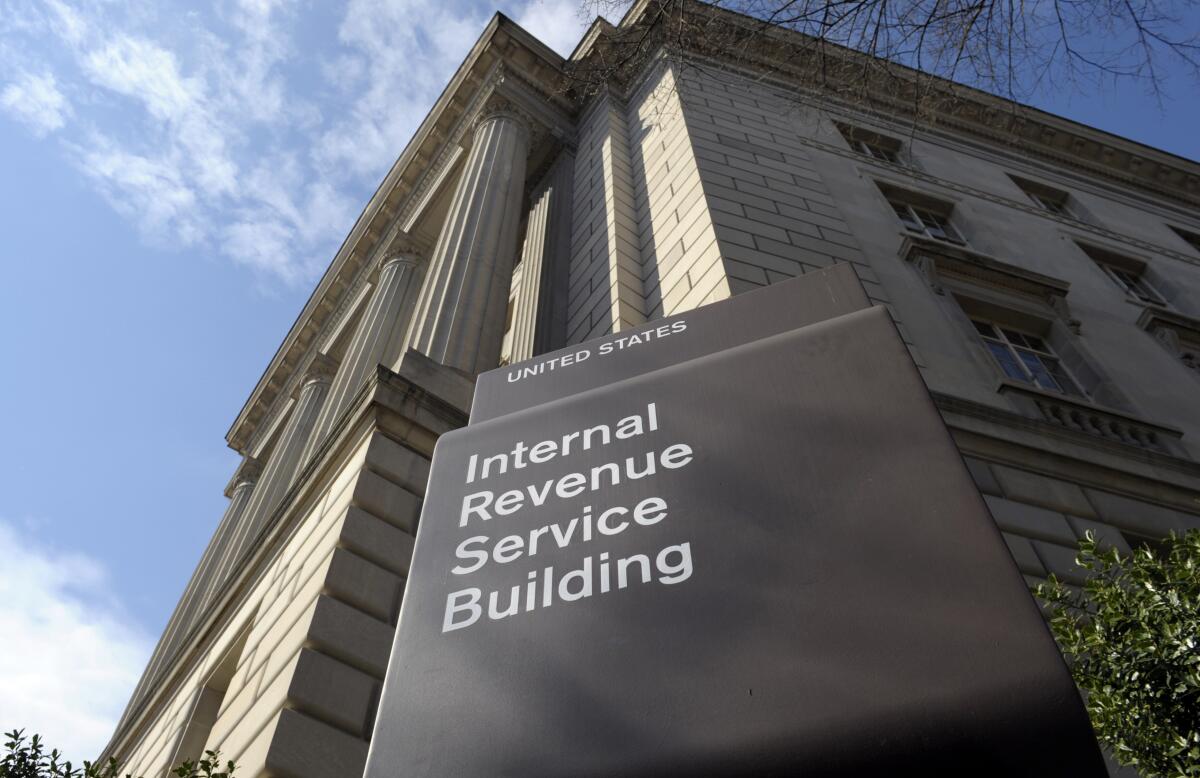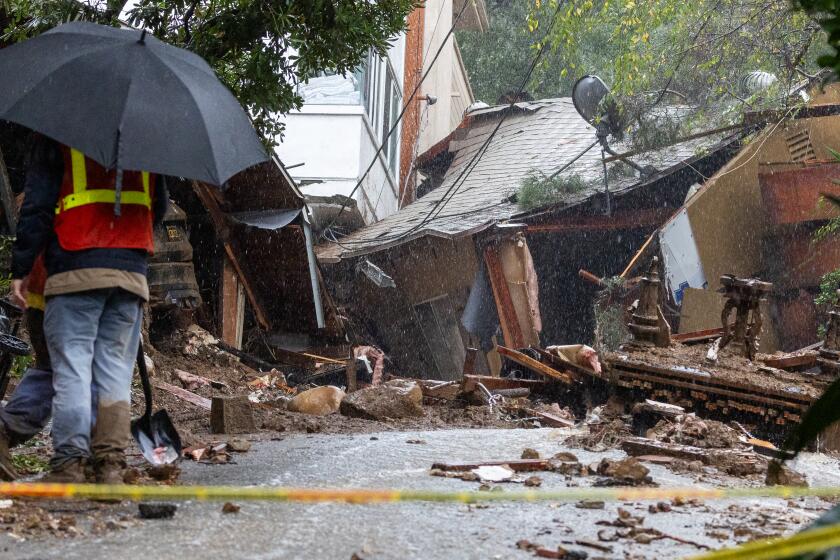IRS gives taxpayers in disaster-stricken San Diego County two extra months to file returns

- Share via
This year’s destructive winter storms in California have prompted the Internal Revenue Service to once again push back its deadlines for filing returns and paying taxes owed — but just for taxpayers in San Diego County.
The agency announced Tuesday that taxpayers in areas covered by the Federal Emergency Management Agency’s storm-related disaster declaration would have until June 17 to file their 2023 returns and pay their outstanding balances. The declaration currently covers only individuals that reside or have a business in San Diego County.
According to the IRS, “the same relief will be available to any other California localities added later to the disaster area.”
Last year the tax agency postponed the deadline multiple times for storm victims while also broadening the relief as FEMA extended its disaster declarations to more California counties. Ultimately, taxpayers in 55 of the state’s 58 counties were given until Nov. 16 to file returns and pay taxes for 2022 and pay their estimated taxes for the first three quarters of 2023.
Bear in mind that most taxpayers have more taxes withheld from their paychecks each year than they owe the IRS. If you expect to receive a refund from the feds, personal finance advisors say you should file your return as soon as you can, regardless of when it’s due.
L.A. County property owners who suffer more than $10,000 in losses may qualify for a property tax reassessment. They may also get a break on penalties.
The president declares a disaster only in response to a request from the state’s governor, which must include a preliminary estimate of the extent of the damage and its effect on the public. Gov. Gavin Newsom successfully sought a disaster declaration for San Diego County in the wake of severe storms and flooding from Jan. 21 through 23.
According to the IRS, the June 17 deadline will now apply in San Diego County for:
- Individual income tax returns and payments normally due on April 15, 2024, along with 2024 estimated tax payments due on that day.
- Contributions to IRAs and health savings accounts for 2023.
- Quarterly payroll and excise tax returns normally due on Jan. 31 and April 30, 2024.
- Calendar-year partnership and S corporation returns normally due on March 15, 2024.
- Calendar-year corporation and fiduciary returns and payments normally due on April 15, 2024.
- Calendar-year tax-exempt organization returns normally due on May 15, 2024.
The later deadline does not apply, however, to requests for extensions beyond June 17 to file and pay 2023 taxes. That deadline remains April 15.
The federal agency in charge of emergency management is making changes to its program that helps those who survive natural disasters.
The IRS says the new deadlines will be applied automatically to any taxpayer whose address of record is in San Diego County, as well as any counties added to the declaration in the future.
The agency advises anyone who receives a late filing notice they believe is undeserved — for example, they lived in an affected county at the time of the storms but changed addresses later, or they lost access to important records held in an affected county — to call the IRS at (866) 562-5227.
Disaster-related losses and disaster relief payments are eligible for special treatment under federal tax law. For more information, consult a tax accountant or read IRS Publication 547, Casualties, Disasters and Thefts and IRS Publication 525, Taxable and Nontaxable Income.
And for more information generally about how a disaster declaration affects your tax return, see the IRS disaster relief web page.
Under state law, homeowners qualify for a modest property tax cut on their primary residence. Yet some 435,000 families in L.A. County don’t sign up.
More to Read
Sign up for Essential California
The most important California stories and recommendations in your inbox every morning.
You may occasionally receive promotional content from the Los Angeles Times.
















